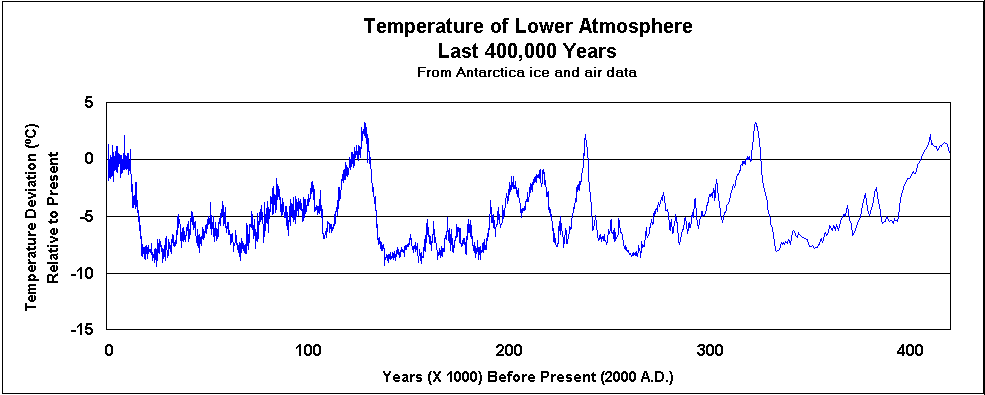MIT Scientists Ask: Is Global Warming Part of a Natural Cycle?
Humm??? Is that a trick question?

******************************
A team of MIT scientists recorded a nearly simultaneous world-wide increase in methane levels -the first increase in ten years. What baffles the team is that this data contradicts theories stating humans are the primary source of increase in greenhouse gas. It takes about one full year for gases generated in the highly industrial northern hemisphere to cycle through and reach the southern hemisphere. Since all worldwide levels rose simultaneously throughout the same year, however, it is probable that this may be part of a natural cycle - and not the direct result of man's contributions.
MIT's Matthew Rigby and Ronald Prinn, the TEPCO Professor of Atmospheric Chemistry in MIT's Department of Earth, Atmospheric and Planetary Science, state that this imbalance has resulted in several million metric tons of additional methane in the atmosphere. Methane is produced by wetlands, rice paddies, cattle, and the gas and coal industries, and is destroyed by reaction with the hydroxyl free radical (OH), often referred to as the atmosphere's "cleanser."
Methane accounts for roughly one-fifth of greenhouse gases in the atmosphere, though its effect is 25x greater than that of carbon dioxide. Its impact on global warming comes from the reflection of the sun's light back to the Earth. Methane is broken down in the atmosphere by the free radical hydroxyl (OH), a naturally occuring process. This atmospheric cleanser has been shown to adjust itself up and down periodically, and is believed to account for the lack of increases in methane levels in Earth's atmosphere over the past ten years despite notable simultaneous increases by man.
Prinn has said, "The next step will be to study [these changes] using a very high-resolution atmospheric circulation model and additional measurements from other networks. The key thing is to better determine the relative roles of increased methane emission versus [an increase] in the rate of removal. Apparently we have a mix of the two, but we want to know how much of each [is responsible for the overall increase]."
The primary concern now is that while the collected data in 2007 reflects a simultaneous world-wide increase in emissions, how relevant are any of the data findings at this late date?
One thing does seem very clear, however; science is only beginning to get a focus on the big picture of global warming. Findings like these tell us it's too early to know for sure if man's impact is affecting things at "alarming rates." We may simply be going through another natural cycle of warmer and colder times - one that's been observed through a scientific analysis of the Earth to be naturally occurring for hundreds of thousands of years.
Wow I guess the writer of the article didn't go to college either! Wonder if them MIT boys are thinking the same thing! Perhaps they ought to go down the hall and talk to Richard
No comments:
Post a Comment